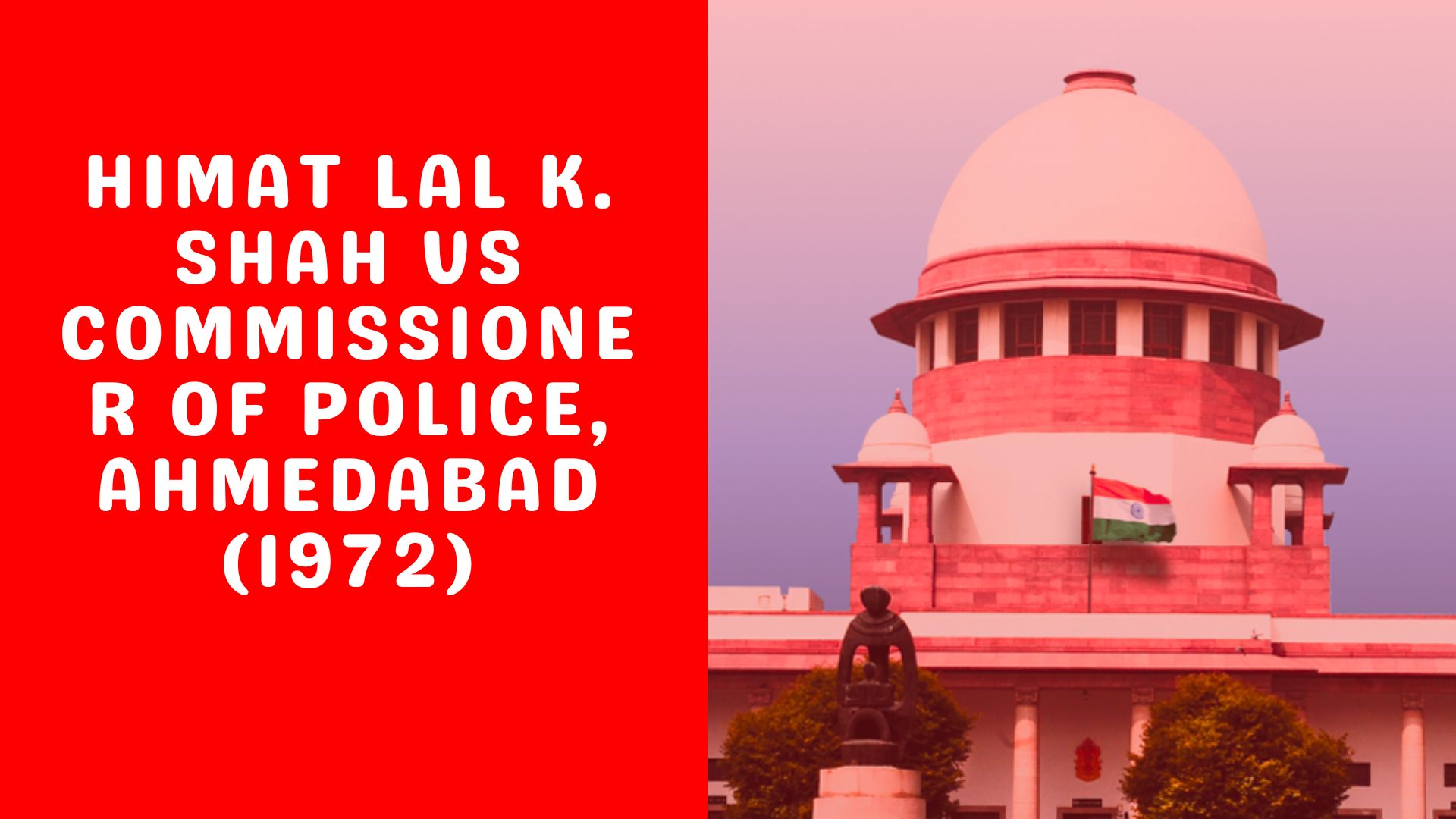
Case Summary - Himat Lal K. Shah Vs Commissioner of Police, Ahmedabad (1972)
(1972) 09 SC CK 0036
In The Supreme Court of India
Case No: Criminal Appeal No. 152 of 1970
Himat Lal K. Shah (Appellant)
Vs
Commissioner of Police, Ahmedabad and Another (Respondent)
Date of Decision: 15-09-1972
Bench: Full Bench
Hon'ble Judges: S. M. Sikri, C.J; P. Jaganmohan Reddy, J; M. Hameedullah Beg, J; K. K. Mathew, J; A. N. Ray, J
Final Decision: Allowed
[Judgment Source]
https://www.courtkutchehry.com/Judgement/Search/AdvancedV2?docid=294008
All Citations
AIR 1973 SC 87; (1973) 14 GLR 461; (1973) 1 SCC 227; (1973) SCC (Cri) 280; (1973) 2 SCR 266
Facts of the Case
The appellant applied for permission to hold public meetings in Ahmedabad, which was refused by the Police Commissioner under rules framed under Section 33(1) of the Bombay Police Act, 1951. The refusals cited procedural lapses and past incidents of disorder. The appellant challenged the validity of Section 33(1)(o) and the rules requiring prior permission for holding public meetings, claiming they violated Articles 19(1)(a) and 19(1)(b) of the Constitution.
Law Points Raised
1. Whether Section 33(1)(o) empowers the Commissioner to mandate prior permission for public meetings.
2. Whether Section 33(1)(o) constitutes excessive delegation and violates Article 14.
3. Whether the rules infringe Articles 19(1)(a) and 19(1)(b) by imposing unreasonable restrictions.
Acts / Provisions / Articles Referred
• Bombay Police Act, 1951 — Section 33(1)(o), Section 33(1)(y)
• Constitution of India — Article 19(1)(a), 19(1)(b), 19(2)
Judgements Referred
• Precedents interpreting 'reasonable restrictions' under Article 19(2) in the context of public assembly and speech.
Obiter Dicta
Public streets are meant primarily for the public to pass and repass, but citizens have a right to use them for public meetings, subject to regulation to ensure order and prevent obstruction. Such regulation must not amount to prohibition except where necessary.
Ratio Decidendi
While the State can regulate assemblies on public streets to maintain public order, rules cannot confer arbitrary power to prohibit meetings. Any regulation must align with Article 19(2) and not amount to a blanket restriction.
Final Ruling
The Supreme Court struck down parts of the rules that imposed blanket prohibitions or conferred unguided discretion, holding that citizens have a right to hold public meetings on streets subject to reasonable regulation under Article 19(2).
Summary
This case clarified that the right to hold public meetings on streets is protected under Articles 19(1)(a) and 19(1)(b), subject to reasonable regulation under Article 19(2). It limited the State’s power to impose prior-permission requirements that could be used to arbitrarily restrict these rights.
[Judgment Source]
https://www.courtkutchehry.com/Judgement/Search/AdvancedV2?docid=294008